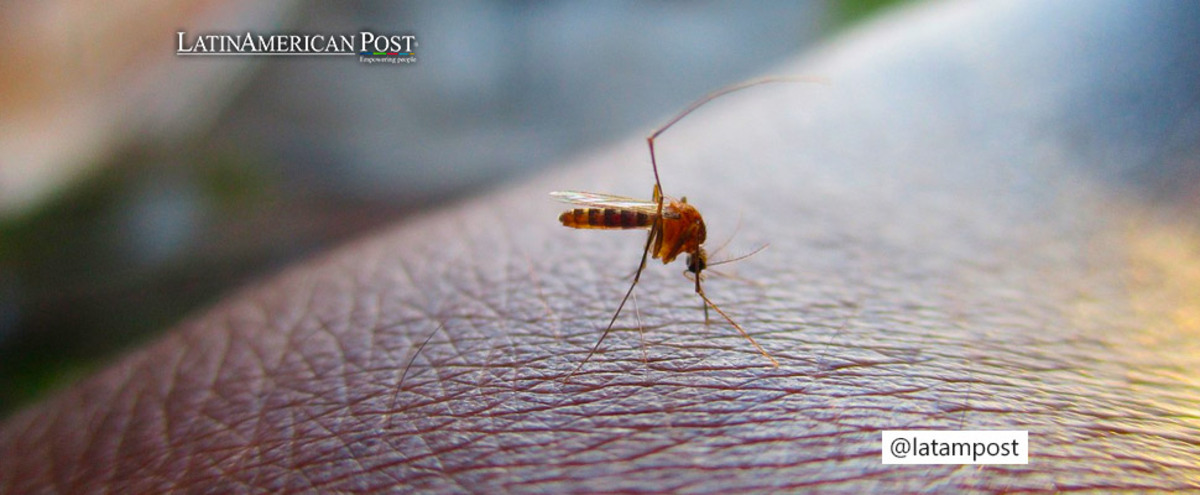Nicaragua Faces Dengue Challenge: Declining Cases, Yet Highest Contagion Rate in America
Nicaragua has reported a slight decline in confirmed and suspected dengue cases, according to the latest figures from the Ministry of Health. However, despite this recent decrease, the country still faces the highest dengue contagion rate in the Americas, posing significant challenges to public health.

Photo: Pixabay
The Latin American Post Staff
Escucha este artículo
Leer en español: Nicaragua enfrenta el desafío del dengue: casos en disminución, pero la tasa de contagio más alta en América
A Closer Look at Nicaragua's Numbers
Nicaragua recently reported a reduction in confirmed and suspected dengue cases, yet remains the country with the highest contagion rate in the Americas. Despite this decrease in weekly case numbers, the overall situation, as highlighted by recent health reports and comparisons with other Latin American countries, points to a significant ongoing health challenge.
In the latest report issued by Nicaragua's Ministry of Health in Managua, there's a mix of cautious relief and underlying concern. The number of confirmed dengue cases has decreased slightly from 635 to 608 in the past week, marking a 4.2% drop from the previous week. Similarly, suspected cases have fallen from 7,885 to 7,508, a decline of 4.8%. While these numbers indicate a weekly decrease, the broader picture of dengue's impact in Nicaragua is more complicated.
PAHO's Broader Perspective
Notably, the Nicaraguan authorities have not released cumulative data for the year on suspected and confirmed dengue cases or related fatalities. However, data from the Pan American Health Organization (PAHO), published by the digital platform Confidencial, paints a broader and more concerning picture. As of September 16, Nicaragua recorded 94,576 suspected dengue cases, surpassing any other Central American country and Mexico in terms of numbers. Out of these, 2,797 patients were confirmed through laboratory tests, and 12 were categorized as severe dengue, as per the PAHO study.
The contagion rate in Nicaragua is particularly alarming. With a rate of 134 cases per 10,000 inhabitants, the country leads the Americas in this regard. This rate surpasses even Brazil and Bolivia, the countries reporting the highest number of suspected dengue cases continent-wide. Despite their larger populations, which dilute the incidence rate, Nicaragua's smaller population size magnifies its infection rate.
Urgent Regional Alert
PAHO's concern over the rise in dengue cases, especially in Central America and the Caribbean, has led to a health alert issued in mid-September. Governments have been urged to review their preparedness and response plans and maintain actions for surveillance, early diagnosis, and timely treatment of dengue cases. This regional perspective underscores the urgent need for effective public health strategies and community engagement to combat the spread of the disease.
Nicaragua's struggle against dengue is situated within a complex socio-economic and healthcare context. In a country where healthcare resources can be limited, and public health initiatives face various challenges, managing epidemic diseases like dengue is particularly demanding. The fluctuating numbers, although currently showing a decrease, require continuous and vigilant public health measures.
The Dengue Virus and Its Threat
The dengue virus, transmitted by Aedes aegypti mosquitoes, poses a significant threat due to its potential to evolve into severe and even fatal forms. The symptoms – high fever, headache, vomiting, muscle and joint pains – are often intense and debilitating. Prevention and control rely heavily on reducing mosquito habitats and public awareness campaigns, focusing on clean water storage and proper waste management.
As Nicaragua and the broader region brace for ongoing battles against dengue, the importance of international cooperation and support becomes evident. Strategies such as community-based mosquito control, public education campaigns, and strengthening of healthcare systems are essential. Furthermore, research into vaccine development and innovative control methods offers a glimpse of hope in the long-term fight against this disease.
Also read: Diseases Caused By Poor Air Quality
Nicaragua's recent dip in dengue cases is a small yet important victory in a more significant ongoing battle. However, as the country with the highest rate of dengue contagion in the Americas, there remains a critical need for sustained, effective, and adaptive public health strategies to safeguard its population against this pervasive and sometimes deadly disease.




